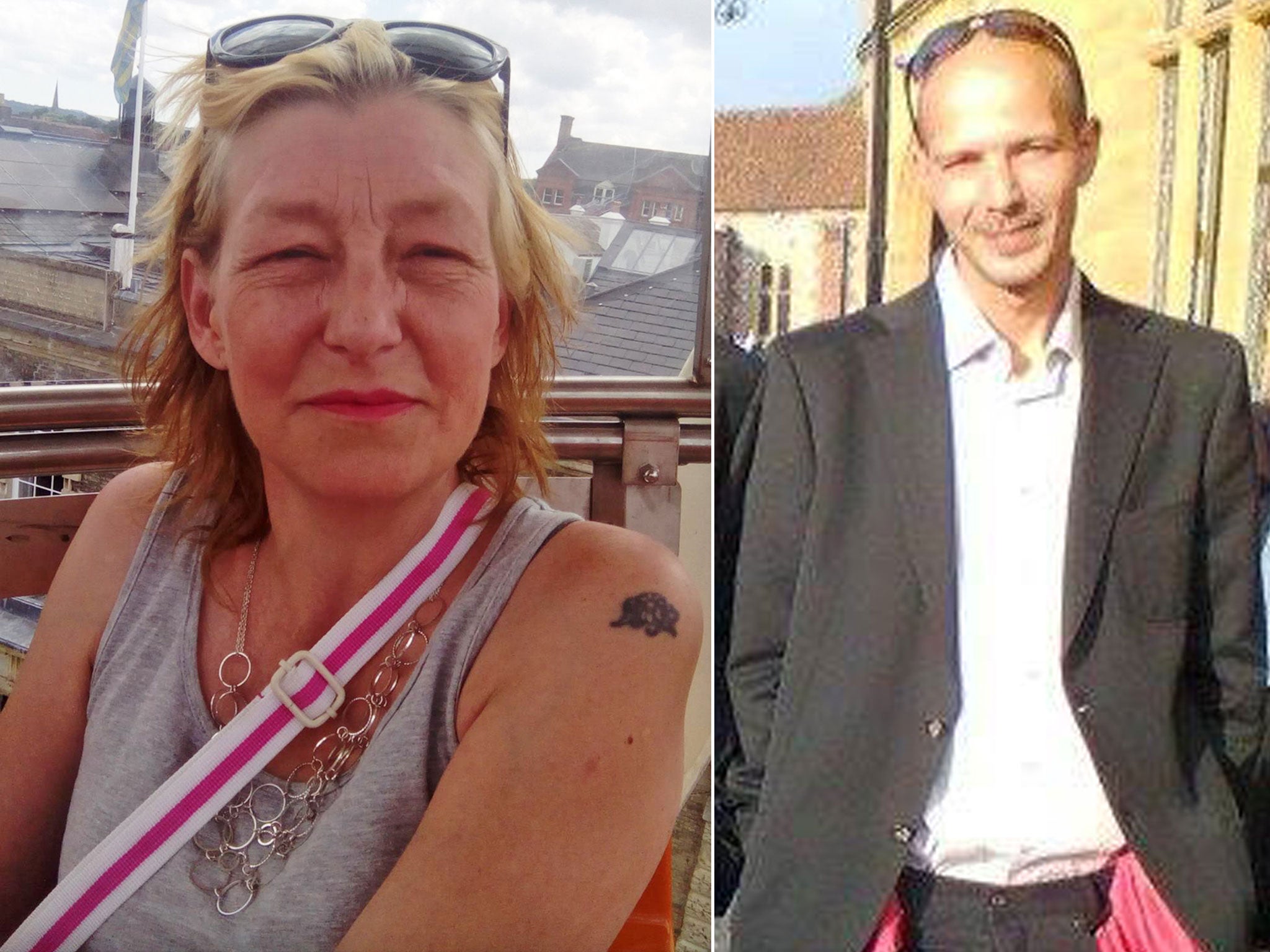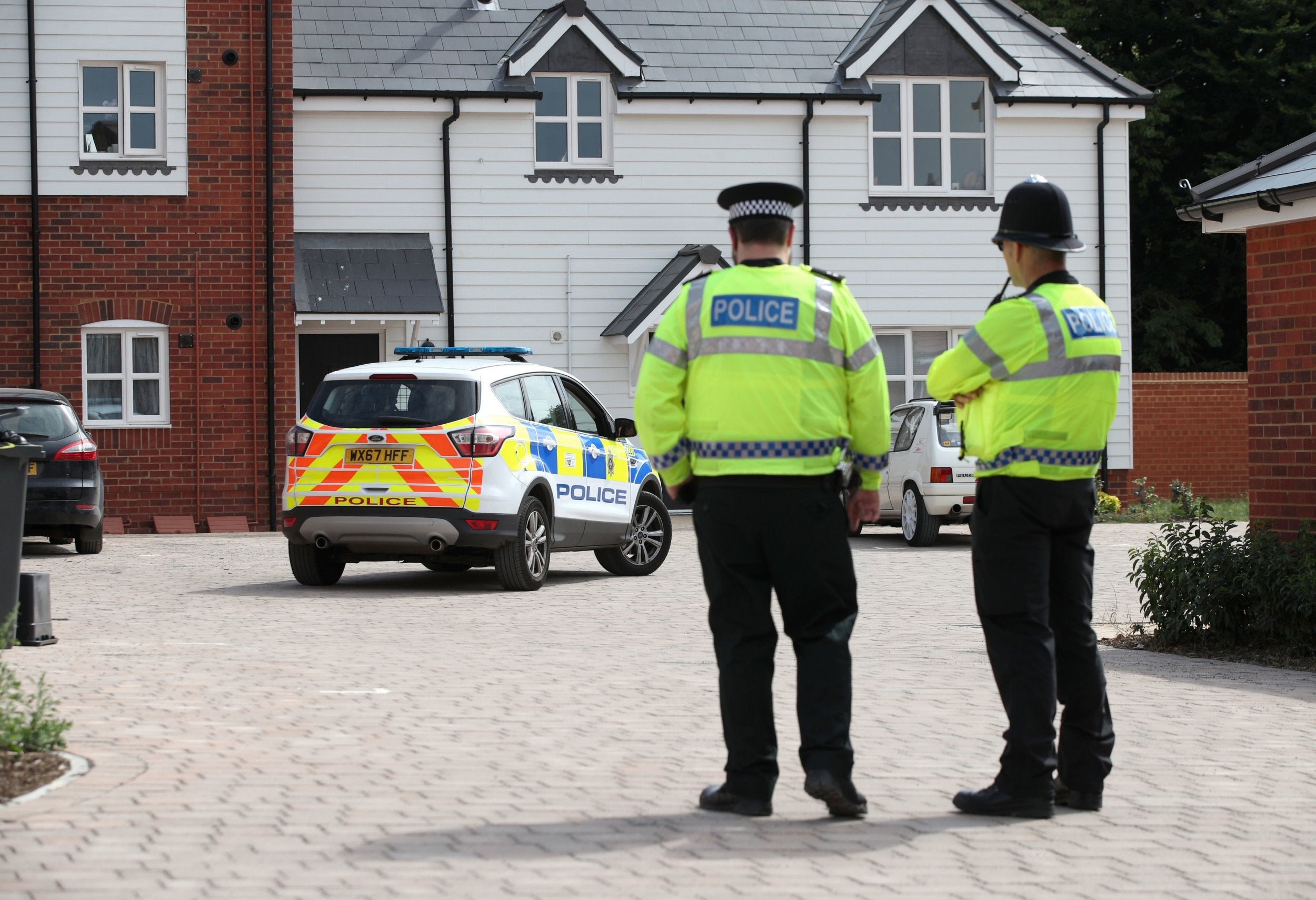Amesbury poisoning latest: People in Salisbury should avoid picking up discarded objects after latest nerve agent incident, says Public Health England
Local MP suggests couple may have come into contact with 'discarded paraphernalia' from Skripal attack
People in Salisbury have been told not to pick up discarded objects after a couple were accidentally exposed to novichok.
Police are investigating whether Dawn Sturgess and Charlie Rowley, who collapsed hours apart on Saturday, came into contact with the same batch of nerve agent used to poison Sergei Skripal and his daughter four months ago.
They remain in a critical condition as counterterror police lead investigations at several sites across Salisbury and Amesbury they visited before falling ill.
The Organisation for the Prohibition of Chemical Weapons, which confirmed the UK's findings that novichok was used in March, has been notified by the government.
Ben Wallace, the security minister, said Ms Sturgess and Mr Rowley were not directly targeted and had no link to the Skripals.
“The working assumption would be that these are victims of either the consequences of the previous attack or something else,” he told BBC Radio 4’s Today programme. “We don’t know everything that happened before, during and after the attack on the Skripals.”
He suggested that the fact Mr Sturgess and Mr Rowley did not fall ill until the day after they visited Salisbury indicates that they may have been exposed to a lower concentration of novichok, which therefore took longer to be absorbed into their bodies and take effect.
Mr Wallace called on Russia to “right the wrongs” of its alleged involvement in the attempted assassination of Mr Skripal, while the Kremlin denied culpability and said it hoped the two new patients recover.
Authorities have already traced the Skripals’ movements and decontaminated all areas they were known to have visited.
Police said Ms Sturgess and Mr Rowley did not go to those locations and tracing their movements may uncover clues over who poisoned the Skripals and how.
Public Health England (PHE) has sought to reassure the public for a second time after having declared Salisbury city centre safe and reopening streets and businesses cordoned off after the March attack.

Its medical director, Paul Cosford, told Sky News members of public in Salisbury should avoid picking up discarded objects as a precaution.
“It's important for all of us to remember not to pick up items you don't know what they are,” he said, calling the advice “highly precautionary but sensible”.
Mike Wade, the deputy director for health protection for PHE South West, said there was “no significant health risk to the wider public” but the assessment will be kept under review.
He advised anyone who had visited the five locations shut off by police, including a church, park, Boots branch and the victims’ homes, to take precautionary action by washing the clothes they were wearing and wiping down personal belongings like phones and bags.
“Please thoroughly wash your hands with soap and water after cleaning any items,” he added.
“You do not need to seek advice from a health professional unless you are experiencing symptoms.”
John Glen, the Conservative MP for Salisbury, believes Ms Sturgess and Mr Rowley had come into contact with "discarded paraphernalia" from the Skripal incident.
“I am extremely concerned as the constituency was just returning to normal after a considerable effort from the local authority and the government to deal with the contaminated sites from the Skripal incident and also put in measures to boost the local economy,” he said.
“This news is extremely unwelcome and my first thoughts are with the two individuals who are critically ill in hospital.
“My strong instinct is that they have somehow encountered some discarded paraphernalia from the Skripal incident and certainly there is no reason to believe they would have been targeted in any separate way, but nonetheless the uncertainty of how that happened is concerning...novichok does not degrade of its own volition."
Distressed Amesbury residents told The Independent they had thought “everything was over” until a major incident was declared in the early hours of Wednesday morning.
“It’s got bigger, and you’re expecting the people to walk about like everything’s normal?” said one woman. “No, it is a bit scary because you don’t know what’s going down.
“We thought as far as the Salisbury incident…that was it, now it’s exposed it all over again.”
Police said officers wearing protective equipment would be carrying out activity at the cordoned-off areas over the coming days, while 100 counterterror detectives are on the case.
Assistant Commissioner Neil Basu, the head of national counterterror policing, said tests at the Porton Down defence laboratory showed that the patients had been exposed to novichok.
Ms Sturgess collapsed at around 10am on Saturday morning, he said, and Mr Rowley fell ill at 3.30pm the same day.
Friend Sam Hobson described him “in a zombie-like state”, adding: “He felt ill and went for a shower. Then his eyes went bloodshot and like two pin pricks, he began garbling incoherently…he was making weird noises and acting like a zombie. He slumped against the wall.”
Medics initially believed the pair had taken a contaminated batch of heroin or crack cocaine, but alerted the security services over the symptoms they were displaying on Monday and had samples sent to Porton Down.
“Following the detailed analysis of these samples, we can confirm that the man and woman have been exposed to the nerve agent novichok, which has been identified as the same nerve agent that contaminated both Yulia and Sergei Skripal,” Mr Basu said.
The senior officer said police could not yet say whether the nerve agent was from the “same batch” that the Skripals were exposed to and were not making any assumptions.
Police have cordoned off several sites visited by the pair including a park and supported accommodation for homeless people in Salisbury, Mr Rowley’s home in Amesbury, and a chemist and Baptist church he visited before falling ill.

Queen Elizabeth Gardens sits just metres away from where the Skripals were found unconscious on a bench in The Maltings shopping district of Salisbury, while John Baker House is just a four-minute walk from a Zizzi’s restaurant where the victims ate.
A former resident of the accommodation claimed Ms Sturgess may have been exposed to nerve agent by collecting cigarette ends, adding: “Lots of people collect half smoked cigarettes - if that's what got the spy and he's chucked it down somewhere, Dawn could have picked it up.”
Public health officials initially said there was no risk to the public in March, but later told diners to wash their clothing and jewellery as military personnel moved in wearing protective suits to cordon off potentially contaminated sites.
When decontamination work started in April, a Department for Environment, Food & Rural Affairs (Defra) official revealed that novichok had been put on Mr Skripal’s front door in liquid form and spread around Salisbury by infected people.
He said the nerve agent could “move between sites by direct transfer by a contaminated person or item” and warned that it “doesn’t just disappear”.
Two meetings of the government’s emergency Cobra committee have so far taken place over the incident and a third is expected this morning.
Sajid Javid, the home secretary, thanked the emergency services and staff at Salisbury District Hospital for their “tireless professionalism”.
“It follows the reckless and barbaric attack which took place in Salisbury,” he added.
“My thoughts at this time are with the two individuals affected. The Government’s first priority is for the safety of the residents in the local area but as Public Health England has made clear, the risk to the general public is low.”
More follows
Bookmark popover
Removed from bookmarks